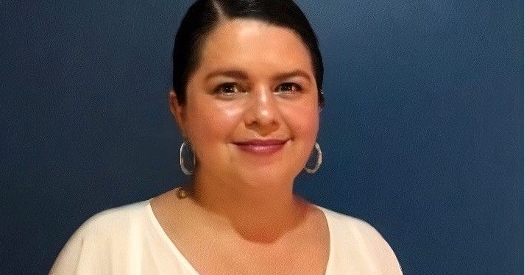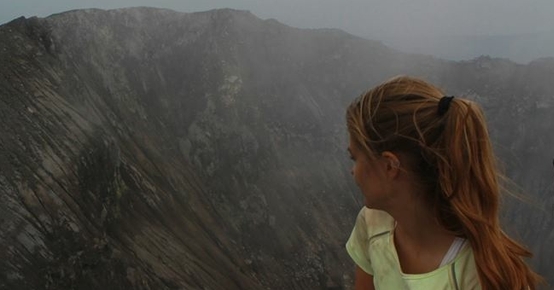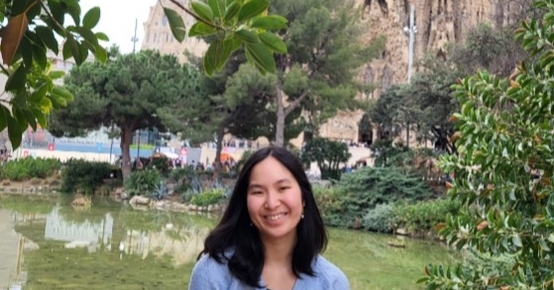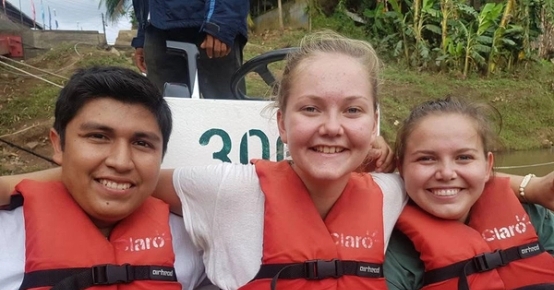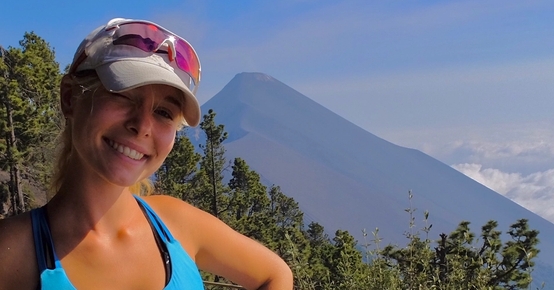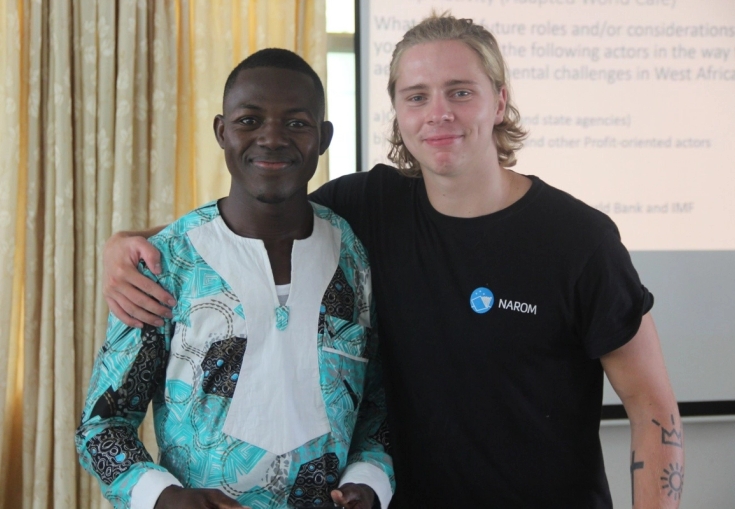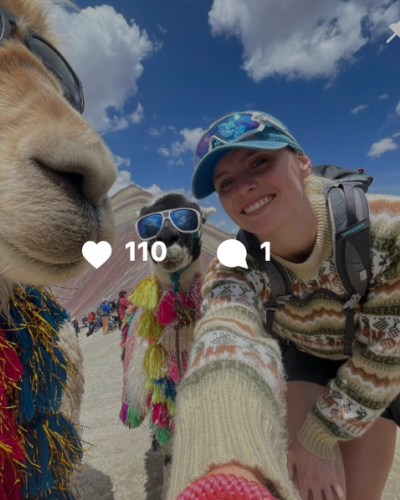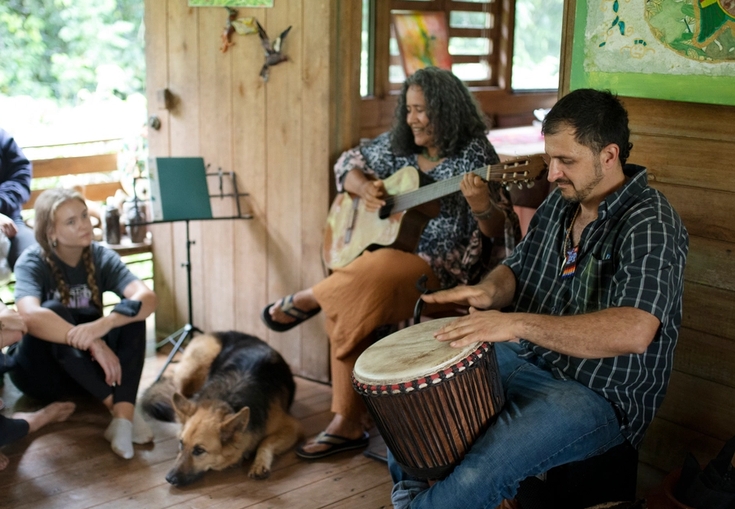
- Costa Rica
- Global Environmental Studies in Costa Rica
- Spanish in Costa Rica
- Introduction to Spanish in Costa Rica
Longo Mai: A self-sufficient village
Are you considering studying Spanish and sustainability or global environmental studies in Costa Rica? Here you can read more about one of the exciting excursions you can join.

Longo Mai is a small village less than an hour's drive from San Isidro. It is a self-sufficient community that about 800 people participate in. Longo Mai means 'long life'.
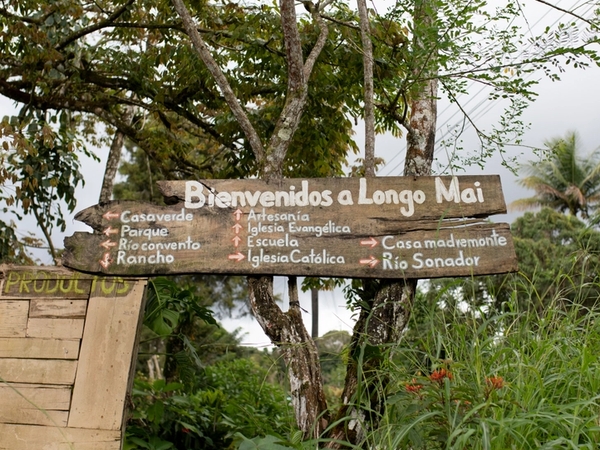
Originally, the village was intended for refugees from civil war-stricken Nicaragua, and later from El Salvador. As the residents began to grow food, they became self-sufficient.
Today, Longo Mai welcomes visitors from various parts of the world who wish to learn more about agriculture and gain insight into a different way of living than what many are accustomed to.
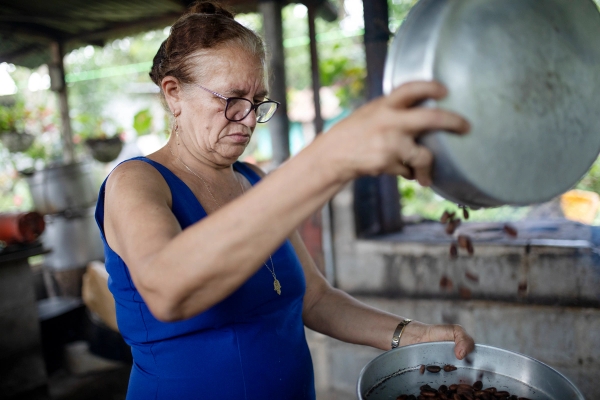
During the 5 days the students visit the village, they learn about agroecology, conservation, sustainable agriculture, organic farming methods, medicinal plants, sugar cane production, and cocoa production.
You live with another student in a local family's home.
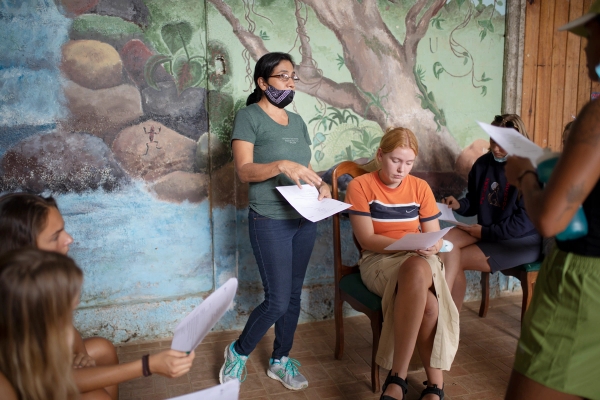
Here you have the opportunity to try your hand at the fields and join in the daily work of planting trees, harvesting fruit, and more, while getting to know the residents of the small community and practicing your Spanish.
Bring your rubber boots!
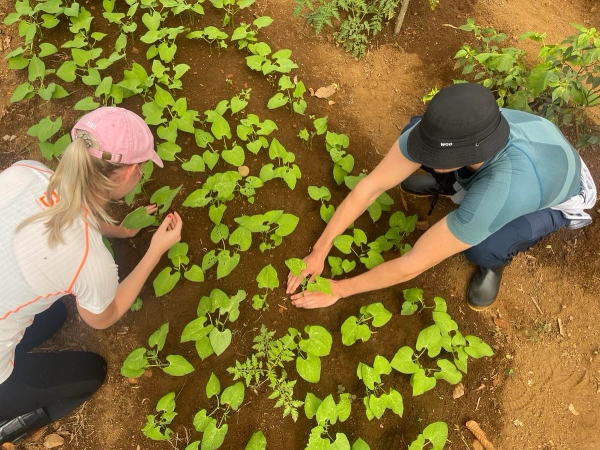
During the stay, the experiences and impressions from everyday life in Longo Mai are linked to theories from the curriculum. Students have the opportunity to get closer to the extraordinary biological diversity of Costa Rica.
Among other activities, we organize a night walk in the jungle to see some of the animals that are active after sunset.
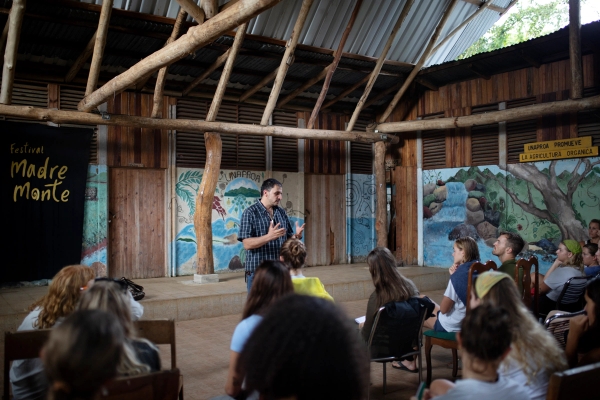
The students learn about ecosystems in tropical forests and how forests regenerate, adaptation to climate change in local communities, and how various stakeholders in Costa Rica work with conservation and political influence.
The trip to Longo Mai is a fantastic opportunity to broaden your horizons and experience what daily life is like in a community that probably differs quite a bit from the place where you grew up.
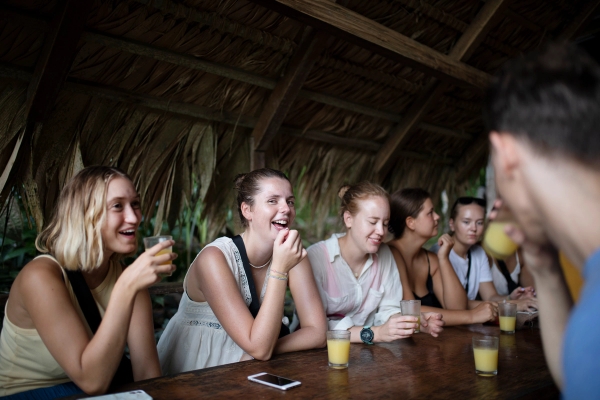
By participating in the work of growing food and other necessary tasks in a small self-sufficient community, and getting close to the wildlife and the Costa Rican forests, the curriculum takes on a new dimension.
